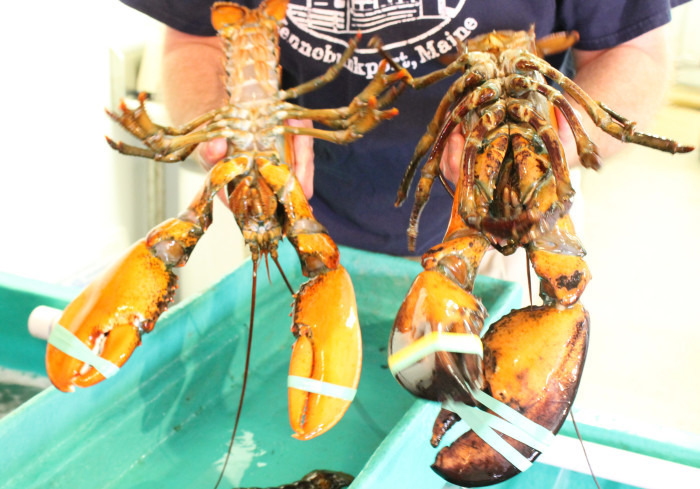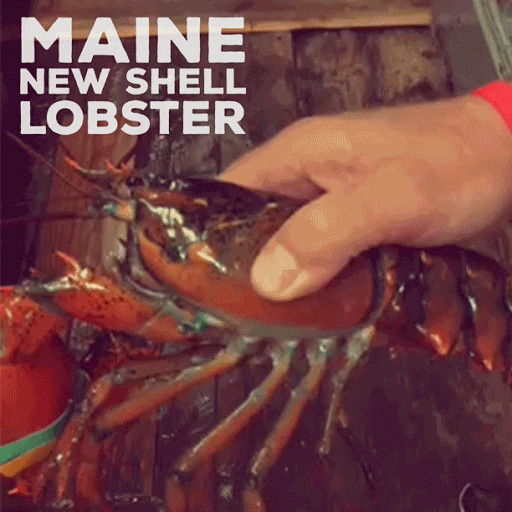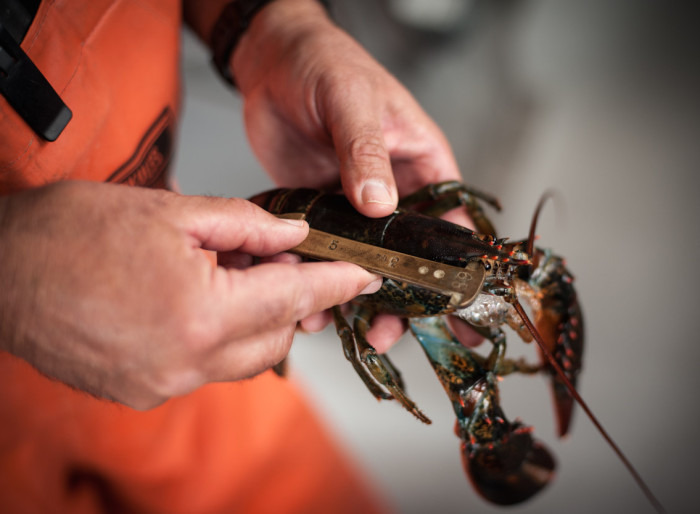We Have A Soft Spot For Maine's New Shell Lobsters
About a month ago, give or take, Maine's lobsters shed their shells. When this annual event takes place, they grow new shells to expand into, and in the meantime, they are in their absolute, most succulent prime. Any East Coast shellfish fan has enjoyed one before, particularly summertime lobster bake/boil enthusiasts; it's just about recognizing the signs: a shell that doesn't shatter into salty shrapnel when confronted with claw crackers, and uncommonly sweet, tender meat. Before their shells harden back up for one of the longest, coldest winters in the country, lobsters' flesh is exposed to more salt water than at any other time, making for light, succulent fare. That's why people will tell you the best lobster they ever had was this one summer in Maine, with a dreamy look in their eyes that can only come from flash-remembering the taste of lemon-spiked clarified butter. They might even tug at a phantom plastic bib.

The shedding had just occurred when I spoke with Maine Lobster Marketing Collaborative executive director Matt Jacobson. The time to dig into lobster is right exactly now.
"We're finding that chefs prefer new shell lobster for a bunch of reasons. One is the meat's sweeter flavor profile, the second is it's great to work with because the shell comes apart a lot more easily and lastly is since that shell is softer and more permeable, they're able to grind it down to flavor soups and sauces," he says.

How can you tell if your lobster has a new shell? They don't all molt at once or in groups depending on location — it's simply about what you pull up in your trap, and it's pretty easy to tell. When squeezed, their abdomens buckle easily beneath your fingers. Squeeze the claw and it's soft enough to feel bubbles in the knuckle. And probably the easiest indicator: They're bright orange even before cooking, as opposed to their hard-shelled brethren, who sport a darker greenish-black hue and then turn red. You're only going to get them from Maine, fished by a lobsterman who's likely been doing this his whole life (along with his father and grandfather before him) and only during this time of year. Seriously, hustle up to Maine — you only have until October. Canadian lobsters, including the rare famed Fourchu, are only caught in the winter, so they're all hard-shells.
"You might be able to find soft shells in November, but it's harder to go fish then because the weather typically gets bad. Once the water gets colder and winter comes, the shells start hardening up," says Jacobson, who recommends tearing the lobster apart with your bare hands because you don't need claw crackers to get every morsel out of this seasonal treat. "A tip, though: For hard-shell lobsters at home, use industrial wire cutters. A chef taught me that," he adds.
If you're on the lookout for sustainable seafood, look no further. "About 10 or 15 years ago, Maine caught about 60 million pounds of lobster," says Jacobson. "In the last four or five years, we've caught 120 million. We have doubled our catch in ten years with the same number of traps and no new technology. Our fishery is really healthy."

From the fishermen's perspective, it's an embarrassment of riches. They've been responsibly catching for more than 150 years, dating back to Maine's first sustainability law in 1879 — the first sustainability law in the country — which established the practice of "throwing the little ones back" in order to reach full maturity. Think of cattle raising, then think of lobster fishing. One requires large amounts of grazing land, water, feed, slaughter and process. The other...well, if you like being on a boat (and countless Maine lobstermen were raised on them) and don't mind burning a few (thousand) calories pulling them up and hauling them home, nature takes care of the rest.

